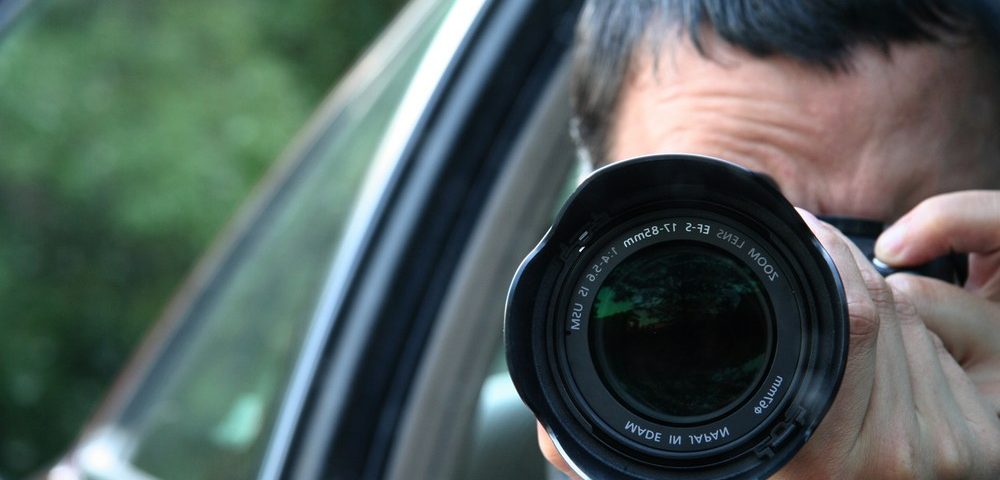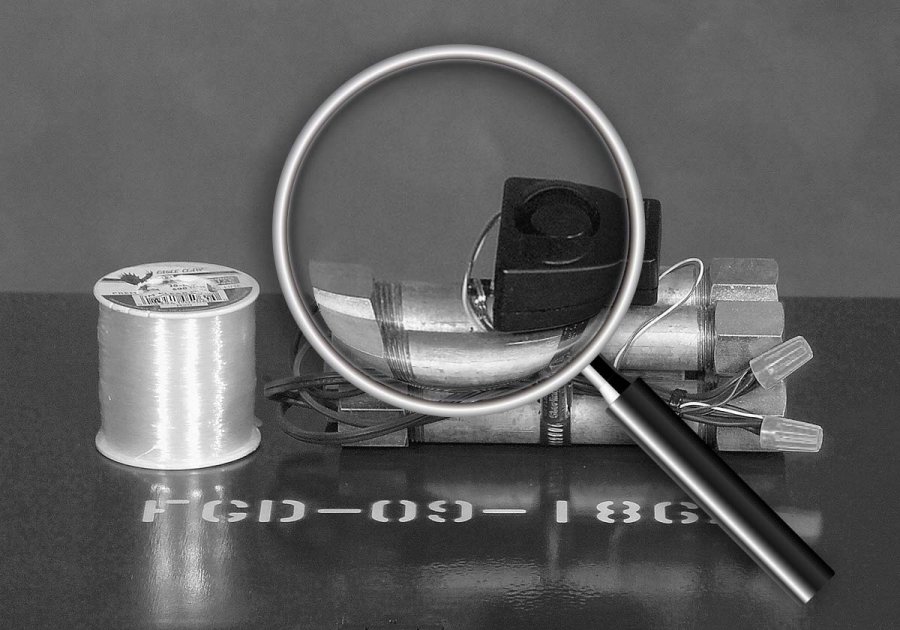We’ve allseen it before: A gorgeous femme fatale slinks elegantly into the smoky private investigators office. She’s looking to investigate a cheating spouse but actually hides a shocking secret.Whatfollows is usuallya deadly tale of car chases, betrayal and way too many venetian blinds.
But when it comes to real private investigation in contemporary Australia: what really goes on? Can phones legally betapped? Do family members actuallyget pursued in speeding taxis?
For the truth and not another hard-shadowed Hollywood myth, please enter my office…
The Law
There are few areas of the law as poorly understood as those surrounding the regulation of surveillance in Australian states and territories. When it comes to state surveillance, governments spying on citizens and other nations, there appears to be no regulation whatsoever as the Edward Snowden revelations have recently shown. There are however strict laws that set out what citizens, companies and private investigators can and can’t do when they want to monitor or observe lovers, competitors, employees or others.
As managing director of a private investigation company I deal every day with clients who want to undertake an investigation involving some form of surveillance. In almost every case, the client is mistaken as to the law in this area. Some people think it is entirely unlawful for anyone but the police to conduct surveillance of another person. At the other end of the spectrum, some people expect to be able to hack their spouse’s phone, track vehicles and do whatever they like in pursuit of their goals. When these people are told that there are limits, some sensibly decide to curtail their plans and act lawfully. A minority choose to disregard the law and do what they want regardless of the repercussions. These people are putting themselves at risk of a criminal conviction and a jail term.
There are different types of surveillance. Traditionally, surveillance was something police and private investigators did physically. That is, they followed a subject person in a vehicle or on foot to see where that person went and what he or she did. This surveillance is still carried out every day around Australia and in most countries in the world. Since the advent of the digital age, there are of course many more types of surveillance possible. There is CCTV, satellite surveillance, GPS surveillance, digital and electronic surveillance of computers, phones and other devices that nobody but those in the intelligence industry know about. The laws that regulate all these complicated activities are still governed by a relatively basic set of laws that some might consider outdated. Whether they are outdated or not, they are the law and even if your objectives in carrying out the surveillance are noble, you can still be charged with breaching the law as reporter Ben Fordham and his producer at Channel 9 found out in 2010 http://www.smh.com.au/nsw/aca-reporter-found-guilty-of–breaching—listening-devices-law-20100720-10j6j.html
Of course, I am bound to include the old disclaimer that, when seeking advice about the law you should consult a lawyer. The problem here is that lawyers are some of the least informed people we speak to in this area of the law! It is not uncommon for us to be instructed by a law firm to carry out some form of surveillance in breach of the law. We of course decline to proceed unlawfully (the evidence would likely be inadmissible anyway).
So, below is our understanding of the law and the way we are happy to proceed based on our interpretation of the relevant legislation and general law.
Legislation surrounding surveillance devices such as video and audio recording equipment is primarily governed by state laws although there are federal laws that can have application as well. The relevant pieces of legislation for the mainland states are as follows:
NSW – Surveillance Devices Act 2007
Vic – Surveillance Devices Act 1999
QLD – Invasion of Privacy Act 1971
SA – Listening and Surveillance Devices Act 1972
WA – Surveillance Devices Act 1998
The above Acts are similar but not identical. In NSW, there is also the Workplace Surveillance Act 2005, which governs surveillance of employees in the workplace.
Phone Tapping
To take the example of using listening devices to record conversations, under the NSW Surveillance Devices Act there are certain circumstances in which you may lawfully record conversations. You may not record a private conversation to which you are not a party so, you can’t leave an audio recording device hidden in your spouse’s car for example to overhear who he or she speaks to in person or on the phone. There is also a prohibition on recording a private conversation to which you are a party, however it is important to note that under section 7(3) of the Act there are exceptions to this rule. If you don’t have the consent of every party to the private conversation then you can record a private conversation to which you are a party if the recording is reasonably necessary for the protection of your lawful interests or if you do not intend to communicate the content of the recording in any way to other parties. This is a useful provision. We understand that it allows you to effectively record every face-to-face conversation that you are a party to provided you are careful what you do with the recording. If you are subject to threats, harassment, defamation, corrupt offers or you are involved in conversations that are important (such as the formation of verbal contracts) then our understanding is that the Act allows you to record these conversations and then, if the content of the conversation is in dispute in later legal proceedings, you may use the recording as evidence to support your version of events. Keep in mind you must be a party to the conversation – if you are not involved then you can’t record it.
The provisions referred to above also have relevance to bugging someone else’s mobile phone or house phone. You can’t do this because you are not a party to the conversation that is taking place on the phone. Note that there are penalties including 5 years of imprisonment for breaching this section.
For the legality regarding tracking devices and the contentious world of data surveillance, please continue to:
Surveillance and Australia Part 2


